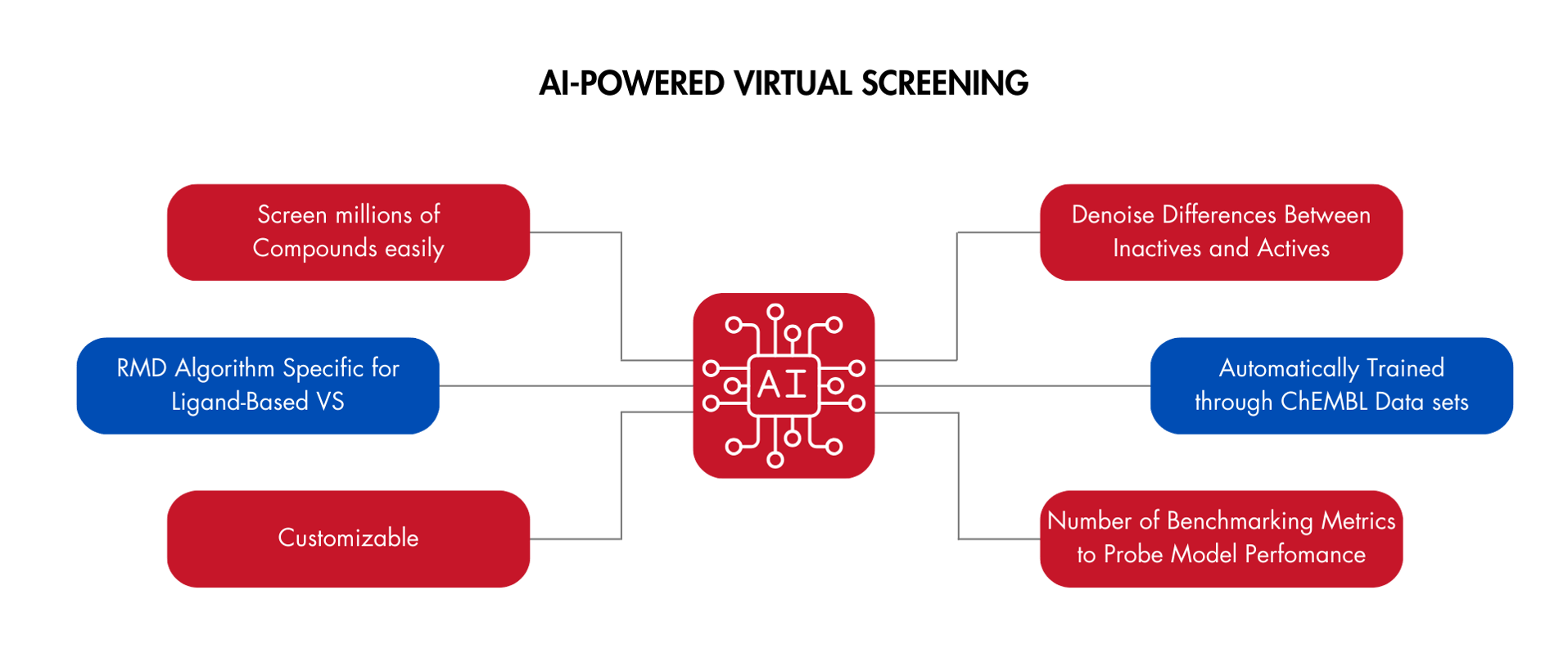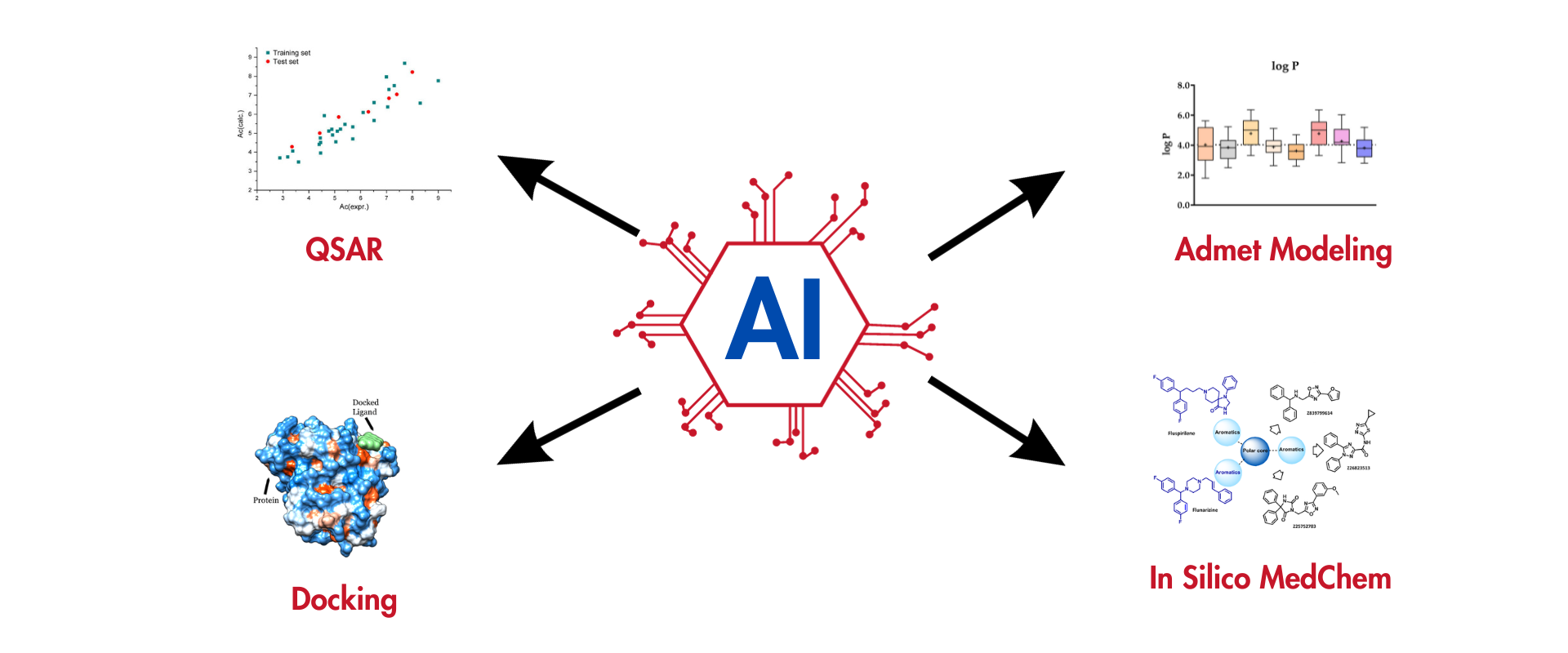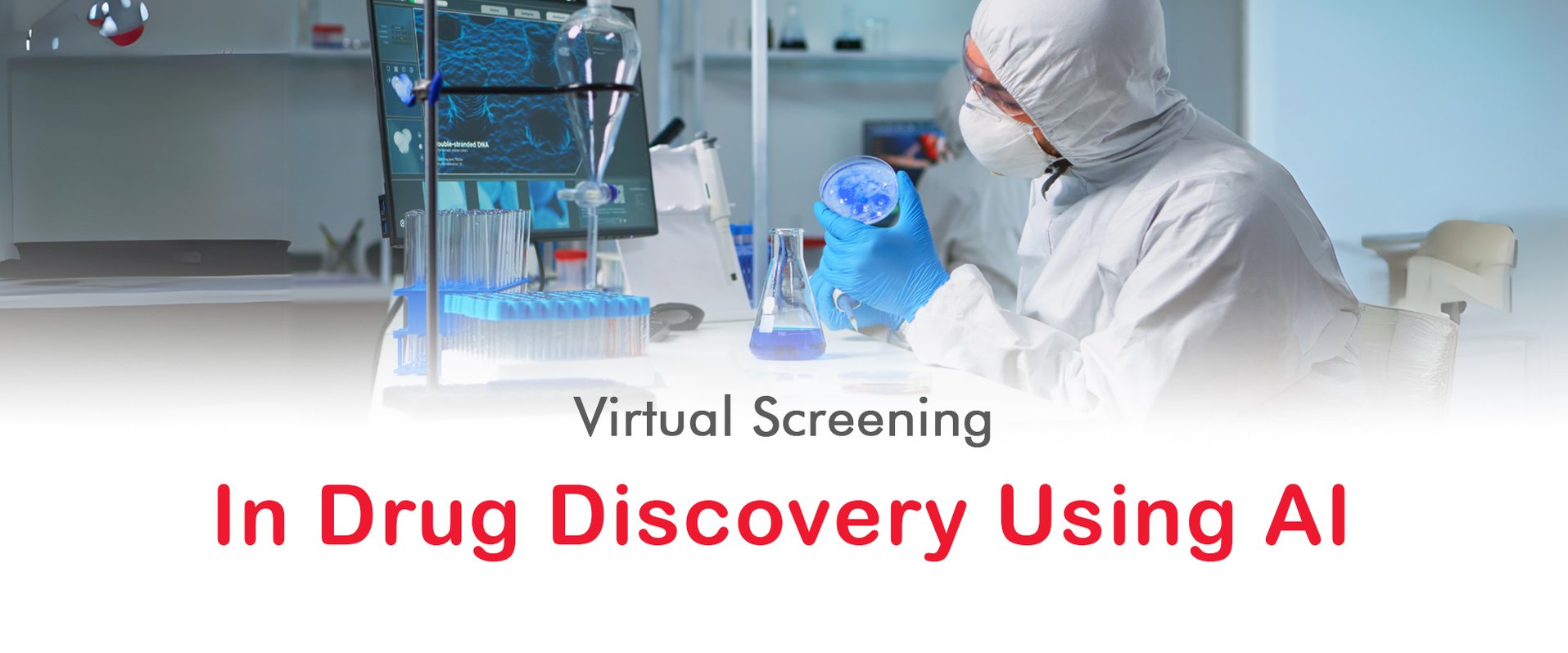Virtual Screening in Drug Discovery Using AI
Introduction
In the dynamic landscape of drug discovery, the fusion of Artificial Intelligence (AI) and Virtual Screening represents a monumental paradigm shift. Changing how researchers find and develop new drugs, AI's amazing ability to analyze big datasets is crucial. It includes details about molecules, biology, clinical trials, and research.
AI helps researchers make well-informed choices based on thorough data analysis. Let's explore how AI affects predictive modeling, making high-throughput screening better, repurposing drugs, personalized medicine, rare diseases, and finding new drug targets.
Approximately 80% of pharmaceutical companies have integrated AI into their drug discovery processes. (Source: Deloitte)
Yet, this journey has its challenges. We need to be careful about data quality, understanding AI, ethics, and strict rules. But as AI gets better, it can speed up getting life-saving medicines, bringing innovation to medicine.
1. Data Analysis and Integration for Drug Discovery
In the realm of drug discovery, the fusion of Artificial Intelligence (AI) and Virtual Screening is revolutionizing the way researchers identify potential drug candidates. AI-driven algorithms are exceptionally adept at processing and integrating vast and diverse datasets, a fundamental requirement for Drug Discovery. These datasets encompass molecular structures, biological data, clinical trial results, and more.AI is like the key to the Virtual Screening process. It helps researchers decide by looking at lots of data.

2. Predictive Modeling in Virtual Screening
AI's strong suit in Virtual Screening for Drug Discovery is predictive modeling. Machine Learning (ML) and Deep Learning (DL) algorithms can analyze how drugs interact with target proteins, a crucial part of Drug Discovery. AI models learn from these interactions and can predict how new compounds might work with specific biological targets. This prediction power is a game-changer because it reduces the number of compounds that need actual lab testing.
3. High-Throughput Screening Streamlined by AI
In the usual way of high-throughput screening, researchers test thousands of compounds in labs, which takes a lot of time and resources in Drug Discovery. AI-powered Virtual Screening changes this. It uses computer models to carefully pick out compounds with high potential, reducing the number of compounds that need real lab testing. This makes Drug Discovery much faster and cost-effective.
4. AI-Powered Drug Repurposing
Within the domain of Drug Discovery and Virtual Screening, AI demonstrates its profound impact on drug repurposing initiatives. It scours existing drug databases and biomedical literature, identifying approved drugs with the potential to address entirely distinct diseases. This application proved invaluable in the rapid identification of potential COVID-19 treatments among existing medications, exemplifying AI's role in expedited Drug Discovery.
5. AI's Role in Rare Disease Research
AI's prowess is particularly pronounced in the realm of rare disease Drug Discovery and Virtual Screening. Conventional methods may falter due to limited available data. However, AI is adept at leveraging existing data, performing predictive modeling, and pinpointing potential candidates for further exploration in the context of rare diseases.
6. Personalized Medicine Enabled by AI

AI's impact on Drug Discovery and Virtual Screening is paving the way for personalized medicine. By analyzing a person's genetic profile, AI can suggest drugs that are tailored to them, optimizing treatment effectiveness and reducing side effects. This represents a significant shift in how we approach Drug Discovery.
7. AI's Contribution to Target Identification
In the quest for Drug Discovery and Virtual Screening, AI plays a pivotal role in identifying novel drug targets. Through the analysis of biological pathways and protein-protein interactions, AI uncovers previously uncharted targets, thereby opening new vistas for drug development.
Challenges and Considerations
Despite the potential of AI in Drug Discovery and Virtual Screening, it faces several challenges:
1. Data Quality: AI's effectiveness relies on good data. Wrong or biased data can hurt predictions and Drug Discovery in the Pharma sector.
2. Interpretability: AI models, especially deep learning ones, can be like mysteries. Understanding why they make certain predictions is still hard in Drug Discovery.
3. Ethical Concerns: As AI becomes more important in Drug Discovery, ethical issues arise. This includes worries about privacy, bias in algorithms, and relying too much on AI.
4. Regulatory Approval: Drugs found using AI need thorough testing and approval. This can take a long time, so Drug Discovery needs a comprehensive approach.
Conclusion
AI's transformative potential in Drug Discovery and Virtual Screening is evident through its capacity to expedite the identification of potential drug candidates, reduce costs, and enhance precision. As AI technologies advance and researchers navigate challenges, the pharmaceutical landscape is poised for revolutionary changes. AI-driven Drug Discovery and Virtual Screening holds the promise of expediting the delivery of life-saving medications, thus benefiting patients worldwide.
About The Author

Arshad Khan
Founder and CEO
The visionary author Arshad Khan with 20+ years of experience in AI & Machine Learning believes the future of Generative AI is bright and full of possibilities. However, it comes with a responsibility to use this transformative technology ethically and responsibly. The comprehensive guide provided in this book offers a roadmap for business leaders, entrepreneurs to navigate this exciting journey. Generative AI has become a force for innovation, competitiveness, and positive change in the business world.


